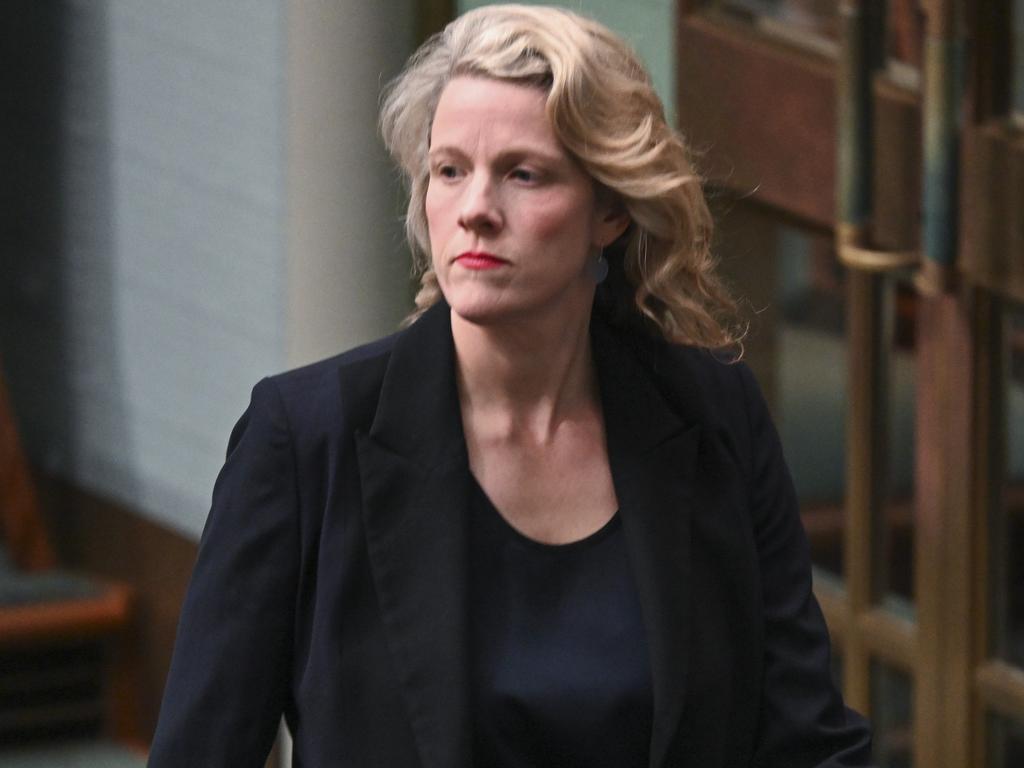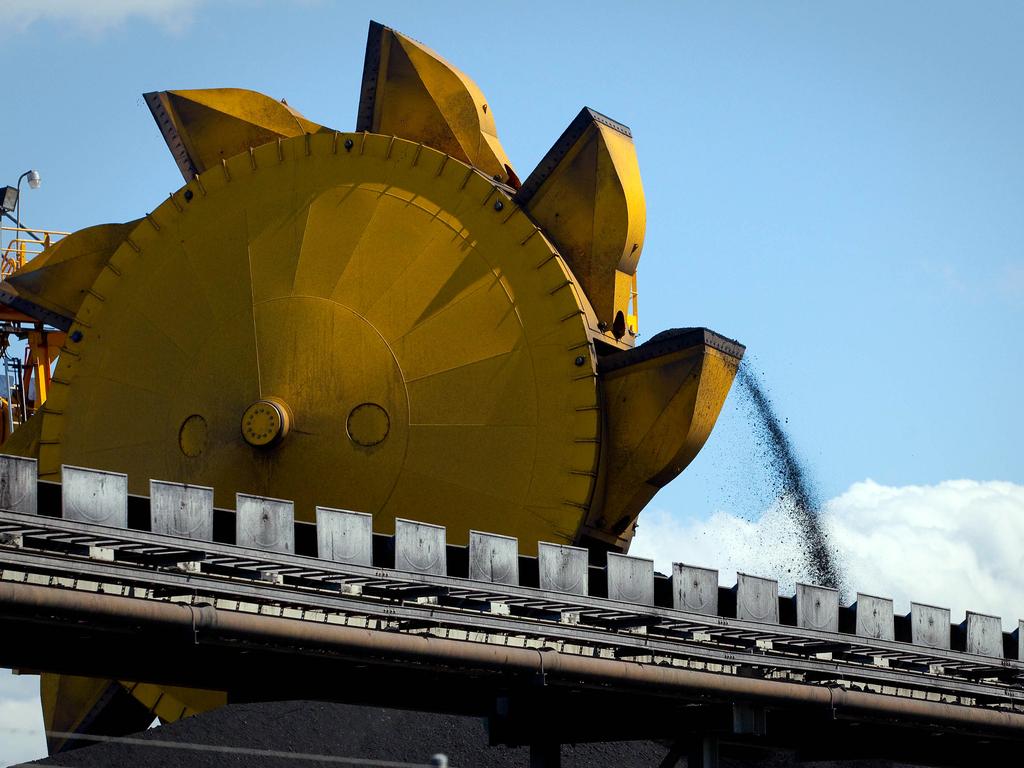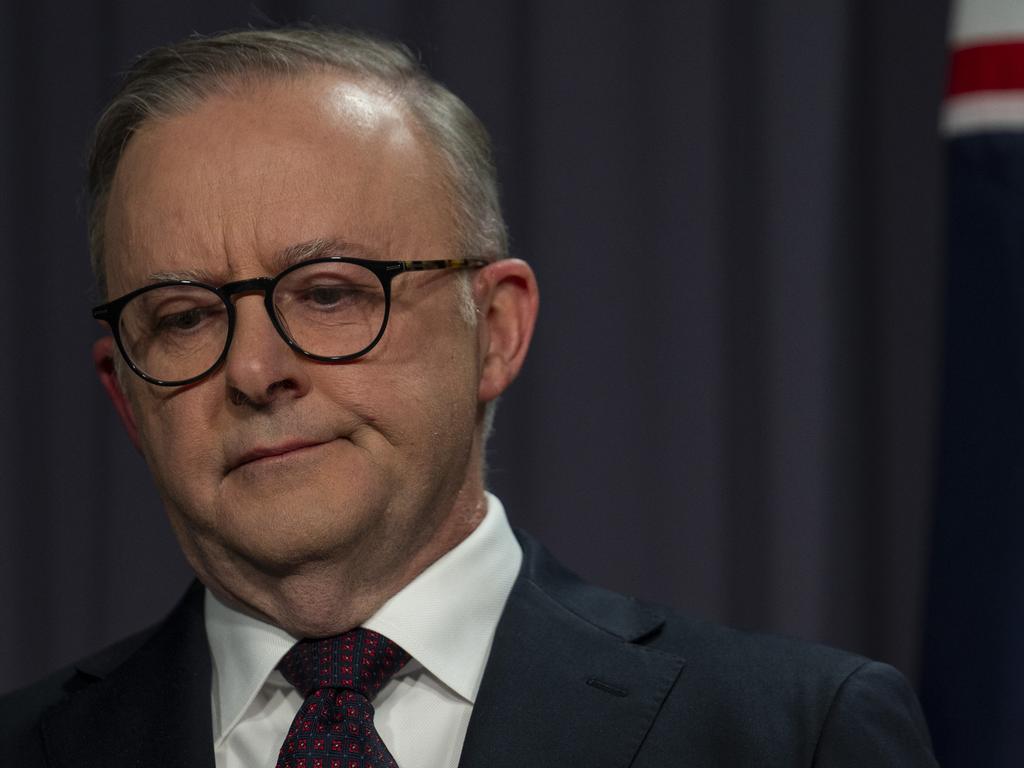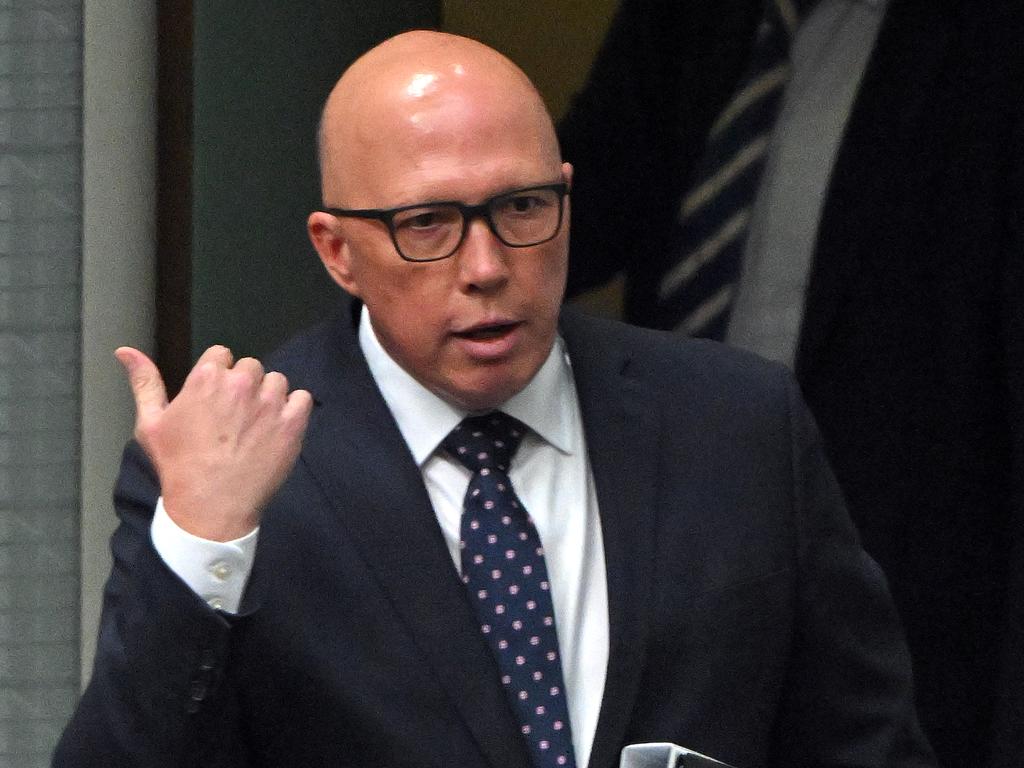Labor’s trouble has been brewing, but now it’s at boiling point for Anthony Albanese


Labor’s trouble has been brewing for some time, is being made worse by the Prime Minister’s international travel and reached boiling point this week as the government was forced to capitulate to Peter Dutton’s demands on new laws to deal with the 83 criminals, including rapists, murders and pedophiles, released from indefinite immigration detention.
Just before leaving for the Asia-Pacific Economic Co-operation leaders summit in San Francisco, Albanese had derided the Dutton’s calls for condemnation of anti-Semitism after the Hamas terror attacks and demands that he stay in Canberra until emergency legislation on the released criminals was passed.
In parliament on Wednesday Albanese declared of the Opposition Leader that there was “no issue too big for him to show how small he is” and that Dutton’s behaviour was “beyond contempt”.

“I make no apologies for trying to bring communities together, not divide them. Because that’s the role of political leaders,” an indignant Albanese fired at Dutton.
Casting off any diplomatic niceties about prime ministerial travel, Dutton said Albanese should not go to the US and the Prime Minister’s first care was to ensure the security of Australian citizens. Dutton said Albanese had failed his prime responsibility at the first hurdle and was going “missing in action”, and called on him “not to get on yet another plane”.
Both leaders broke new ground in denigrating the other in an extraordinary exchange that demonstrated the pressure and the need for decisive action both are feeling.
There is only one sitting week of parliament left this year before the Christmas-summer break, it’s halfway through the election cycle and the polls are shifting away from the ALP and Albanese personally.
The Indigenous voice referendum itself will not have a role in the next election, but for the government its result has been an unsettling demonstration that Labor voters are prepared to vote against the urgings of their ALP members and a sign of being out of touch with a changed electoral dynamic.

It’s true many of the main difficulties facing Labor now are circumstances beyond the government’s control: the divisions over the Hamas terror attacks and Gaza fighting; the rise of anti-Semitism; the High Court decision to release murderers, rapists and pedophiles from indefinite immigration detention; global economic threats; and regional security uncertainties because of continuing Chinese coercion.
But the problem about how to quickly and effectively deal with these issues is Albanese’s responsibility and duty. As Prime Minister, Albanese is not being helped by public differences between ministers, arrogant policy implementation and unpopular agendas.
What is worse is that the entire government appears to be able only to react to issues, and then slowly and ineptly, and lacks initiative. All of which is being made worse by Albanese’s frequent overseas trips.
Albanese himself recognises the political damage he’s suffering as a result of his 21 international trips in 18 months and absences from parliament, which meant he was in China when interest rates rose for the 13th time in a row and, more important, left as emergency legislation on the released criminals was being drawn up on Wednesday night.

But the problems didn’t start with the High Court’s rejection of a longstanding immigration detention policy last week. The government has been flailing and failing for some time and Albanese’s return for parliament this week – and abrupt departure – did nothing to solve the myriad problems mounting each day or to restore the political momentum lost after the defeat of the Indigenous voice referendum.
Only a month ago Albanese and Labor were rocked by the absolute rejection of the referendum, including in most ALP electorates, which had been Labor’s top priority since the election in May last year. It wasn’t just the psychological blow from the loss but also the realisation that Albanese’s political judgment on the referendum, and that of all his acquiescent colleagues, was awry and out of touch with most Australians.
This meant any following political event could develop rapidly into a large negative if not handled quickly and effectively. And this is precisely what has happened.
The challenges of the threat to global security from the Hamas terror attacks on October 7 and the response from Israel in Gaza, and the connected rise of anti-Semitism in Australia have consumed the government.
Senior ministers have contradicted each other and government policy. Penny Wong, as Foreign Minister, shifted the boundaries on demands for an Israeli ceasefire, and varying declarations of support for Palestine and Israel have created internal divisions and tensions.

As well, the Labor leadership was slow and equivocal in its initial reaction to the Hamas attacks on October 7, and even slower and more inept in dealing with the rise of anti-Semitism here.
Albanese has been unable to decisively heal the divisions over Israel, and the High Court’s decision last week forcing the release criminals from indefinite immigration detention made things only worse for him.
The instinct of long-term Labor critics of Coalition policies on refugees and asylum-seekers was to bend towards the arguments of human rights advocates. Immigration Minister Andrew Giles failed in his ministerial duty to have precautionary legal advice on a legislative fix in case of defeat. And Albanese’s view of Dutton as an unelectable Dr No clouded the political judgment on what people were thinking in the communities where the criminals were being released.
Labor’s default progressive position on refugees and disdain for Dutton meant it did not want to take action to limit the released detainees, was incapable of doing so, or was again out of touch with popular feeling. All these disruptive issues were coming together and it was no coincidence that Dutton decided to press the button on his political attack only hours before it was wheels-up for the VIP flight to the APEC summit.
It is a problem for Albanese that he is in San Francisco because his absence overseas has become a lightning rod for anything that goes wrong while he’s away. But it was even worse on the immigration detention issue because Dutton forced Labor into a complete capitulation over his tough-minded amendments, including mandatory sentencing.
And it wasn’t just the amendments Labor accepted but also Dutton’s political agenda of a crisis that was generating community fears and informed his rhetoric of “dark days” and leadership failure.
“The Australian Prime Minister has one of the most serious charges in this country. That is to take care of the Australian people, to protect, to defend them, to make sure that when threats exist, the Prime Minister utilises the powers at his disposal to deal with that threat, to neutralise it and to keep our country and our people safe,” Dutton told parliament. “And he fails at the first hurdle.”
As Acting Prime Minister, Richard Marles had to negotiate with Dutton to ensure the new laws were passed urgently or the politics for Labor would have been even worse. As it is, Labor has managed to calm the crisis for the moment, but it is still a problem for the government and an even bigger problem for Albanese’s leadership.
All these demonstrations of the government being out of touch with people has awakened concerns among Labor MPs.
In the past month since the defeat of the referendum four senior ministers – Jim Chalmers, Environment and Water Minister Tanya Plibersek, Climate Change and Energy Minister Chris Bowen and Industry and Science Minister Ed Husic – have all made speeches about Labor’s need to keep in contact with traditional ALP voters and to connect their portfolio policies to practical benefits for people.
The Treasurer and Plibersek used tributes to late, great Labor leaders Bill Hayden and Jack Ferguson to point out their grip on solid working-class values and the need to remember who voted for you.
Husic paid tribute to his own hardworking welder father and the people who live in the vast and varied western suburbs of Sydney. As Plibersek did with environment, Bowen sought to link his portfolio aims of carbon reduction to benefits for the workers, the poor and disadvantaged.
Recognising the danger of being seen to be out of touch with the average person and the voter in the suburbs, Plibersek said it would be “their judgment that will decide the next federal election” and the trust of those in the suburbs, once lost, was even harder to win back.
“We know we can never take that trust for granted,” she said. “The times where we have done that, when we have slipped up, we have been punished for it, and rightly so.”
These are more than straws in the wind as warnings to the Albanese government that it is in a precarious position.







Anthony Albanese and his government are in trouble.